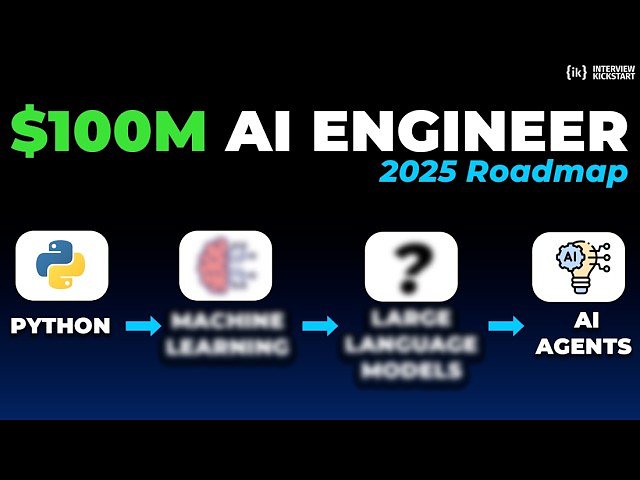
The Rise of 'Trustworthy AI': Upskilling to Meet Demand for Explainable Systems
As AI adoption accelerates, demand for 'explainable AI' (XAI) is surging – driven by regulation, ethical concerns, and the need for transparent decision-making. Training platforms like Interview Kickstart are responding with specialized programs to bridge the growing skills gap.
The Rise of 'Trustworthy AI': Upskilling to Meet Demand for Explainable Systems
NEW YORK, NY – October 30, 2025
The Growing Imperative for Explainable AI
The rapid proliferation of Artificial Intelligence across industries is increasingly accompanied by a critical question: how do we trust these systems? As AI algorithms move beyond simple tasks and begin influencing critical decisions in areas like finance, healthcare, and criminal justice, the demand for explainable AI (XAI) is exploding. Experts predict the XAI market will reach $34.6 billion by 2033, up from $6.4 billion in 2023, reflecting a growing recognition that transparency and accountability are no longer optional, but essential.
“The ‘black box’ approach to AI is becoming untenable,” says one industry analyst. “Organizations need to understand why an algorithm is making a particular prediction, not just that it's making it. This is about risk mitigation, regulatory compliance, and building trust with customers.”
The push for XAI is being fueled by a confluence of factors, including increasingly stringent regulations like the EU AI Act, which mandates transparency for high-risk AI systems, and a growing societal concern about algorithmic bias and fairness. Without the ability to explain how AI arrives at its decisions, organizations face significant legal, reputational, and ethical risks.
Bridging the Skills Gap: Training for the XAI Era
However, building and deploying truly explainable AI systems requires a specialized skillset that is currently in short supply. A recent report confirms that for every qualified engineer skilled in generative AI, there are ten open positions in India – a stark illustration of the growing talent gap. This skills shortage isn’t limited to India; globally, demand for AI professionals with expertise in XAI is outpacing supply.
“There's a massive need for individuals who can not only build AI models but also understand and articulate how those models work,” explains an AI ethics consultant. “This requires a deeper understanding of model interpretability techniques, fairness metrics, and responsible AI principles.”
Several training platforms are stepping up to address this demand. Interview Kickstart, a professional upskilling platform, recently launched a specialization in XAI within its flagship Machine Learning course, recognizing the burgeoning need for professionals capable of building and deploying responsible AI. The course covers crucial areas such as tree-based models, model evaluation, unsupervised learning, ensemble methods, transformer models, and techniques like LangChain and RAG.
“We saw a clear market need for specialized training in XAI,” says a spokesperson for Interview Kickstart. “Organizations are realizing that building trust in AI requires more than just achieving high accuracy; it requires understanding and being able to explain the underlying logic.”
The program, like many others emerging in this space, aims to equip professionals with the practical skills needed to build explainable models, interpret model predictions, and mitigate potential biases. Courses commonly incorporate hands-on coding exercises, mentorship from industry experts, and mock interviews focused on XAI concepts.
Beyond Compliance: The Business Value of Explainable AI
While regulatory compliance is a key driver of XAI adoption, the benefits extend far beyond simply meeting legal requirements. Explainable AI can unlock significant business value by improving decision-making, reducing risk, and building customer trust.
“Transparency builds confidence,” explains a data science manager. “If you can explain why an algorithm is recommending a particular product or approving a loan application, customers are more likely to trust your system and engage with your services.”
For example, in the financial sector, XAI can help lenders understand the factors driving credit risk assessments, enabling them to make more informed lending decisions and reduce potential biases. In healthcare, explainable AI can help doctors understand the reasoning behind diagnostic predictions, leading to more accurate diagnoses and improved patient outcomes. And in the realm of cybersecurity, XAI can help security analysts understand the rationale behind threat detection alerts, enabling them to respond more effectively to cyberattacks.
The ability to understand and interpret model predictions also enables organizations to identify and address potential biases in their AI systems. This is crucial for ensuring fairness and preventing discriminatory outcomes, which can have significant legal and reputational consequences.
“Building trustworthy AI is not just about technical expertise; it’s about ethical responsibility,” says an AI ethics consultant. “Organizations need to prioritize fairness, transparency, and accountability in their AI development processes.”
As AI continues to permeate all aspects of our lives, the demand for explainable AI will only continue to grow. Organizations that invest in upskilling their workforce and prioritizing ethical AI principles will be best positioned to thrive in the era of responsible AI.
